
My cat April acting as a snuggly blanket while I finish my last textbook chapter of the semester. Only a week and a half left of class, two and a half weeks left of work, and then I will have 16.5(!) days off. Not that I‘m counting...

My cat April acting as a snuggly blanket while I finish my last textbook chapter of the semester. Only a week and a half left of class, two and a half weeks left of work, and then I will have 16.5(!) days off. Not that I‘m counting...
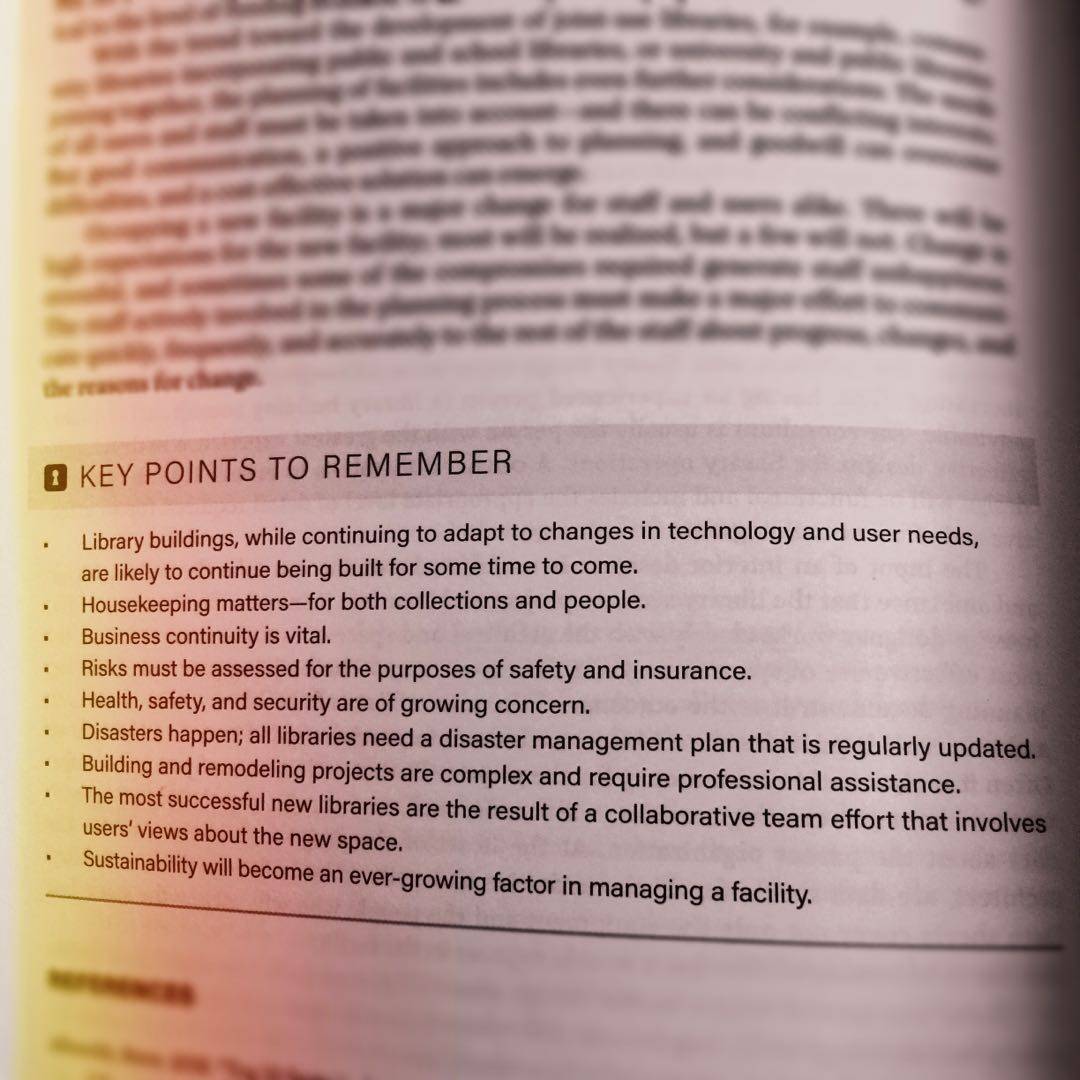
“- Library buildings, while continuing to adapt to changes in technology and user needs, are likely to continue being built for some time to come.
- Housekeeping matters - for both collections and people.
- Business continuity is vital.
- Risks must be assessed for the purposes of safety and insurance.
- Health, safety, and security are of growing concern.
- Disasters happen; all libraries need a disaster management plan that is regularly updated”

April enjoying reading about managing technology in libraries with me today #catsoflitsy #beststudybudy
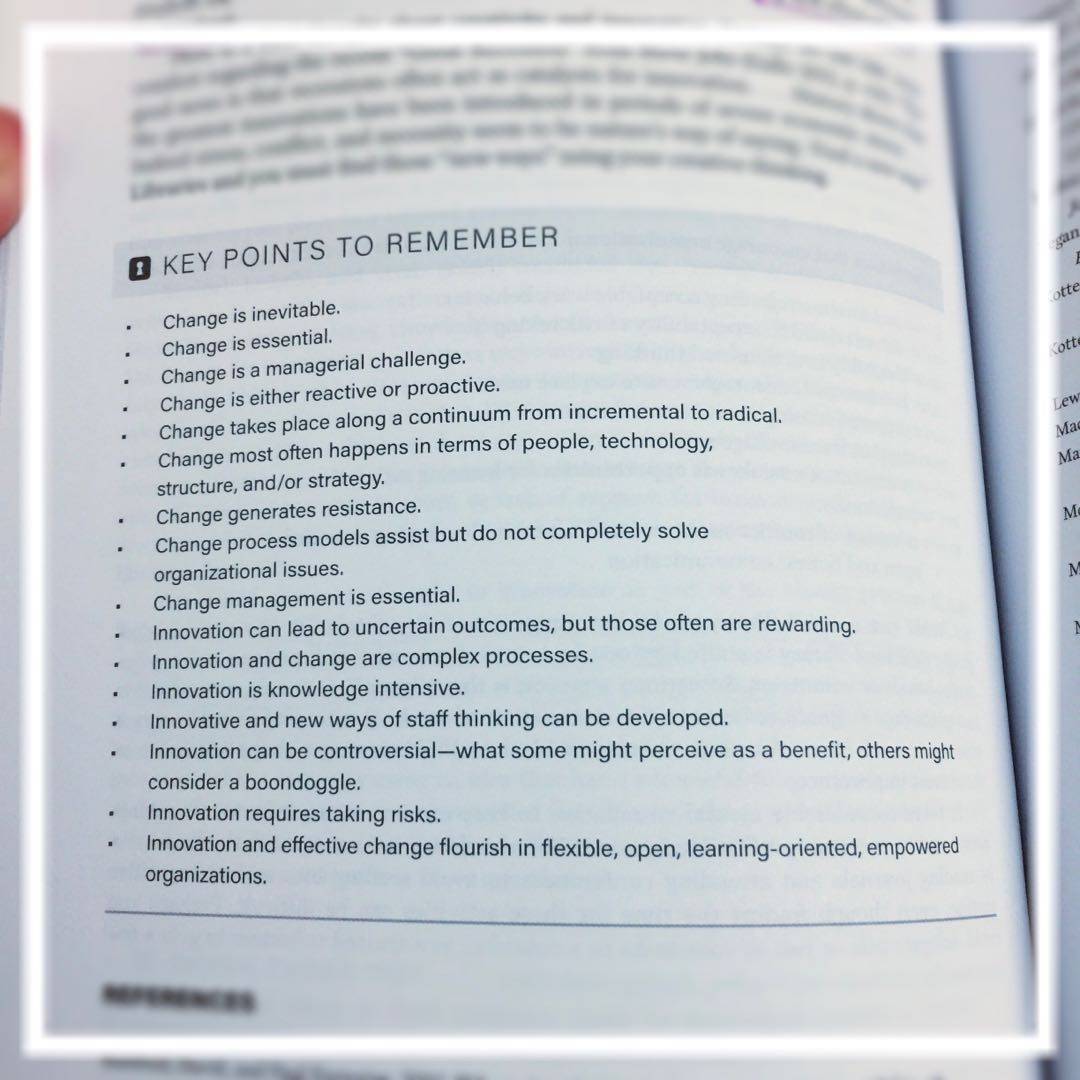
“- Change is inevitable.
- Change is essential.
- Change is a managerial challenge.
- Change is either reactive or proactive.
- Change takes place along a continuum from incremental to radical.
- Change most often happens in terms of people, technology, structure, and/or strategy.
- Change generates resistance.
- Change process models assist but do not completely solve organizational issues.
- Change management is essential.”
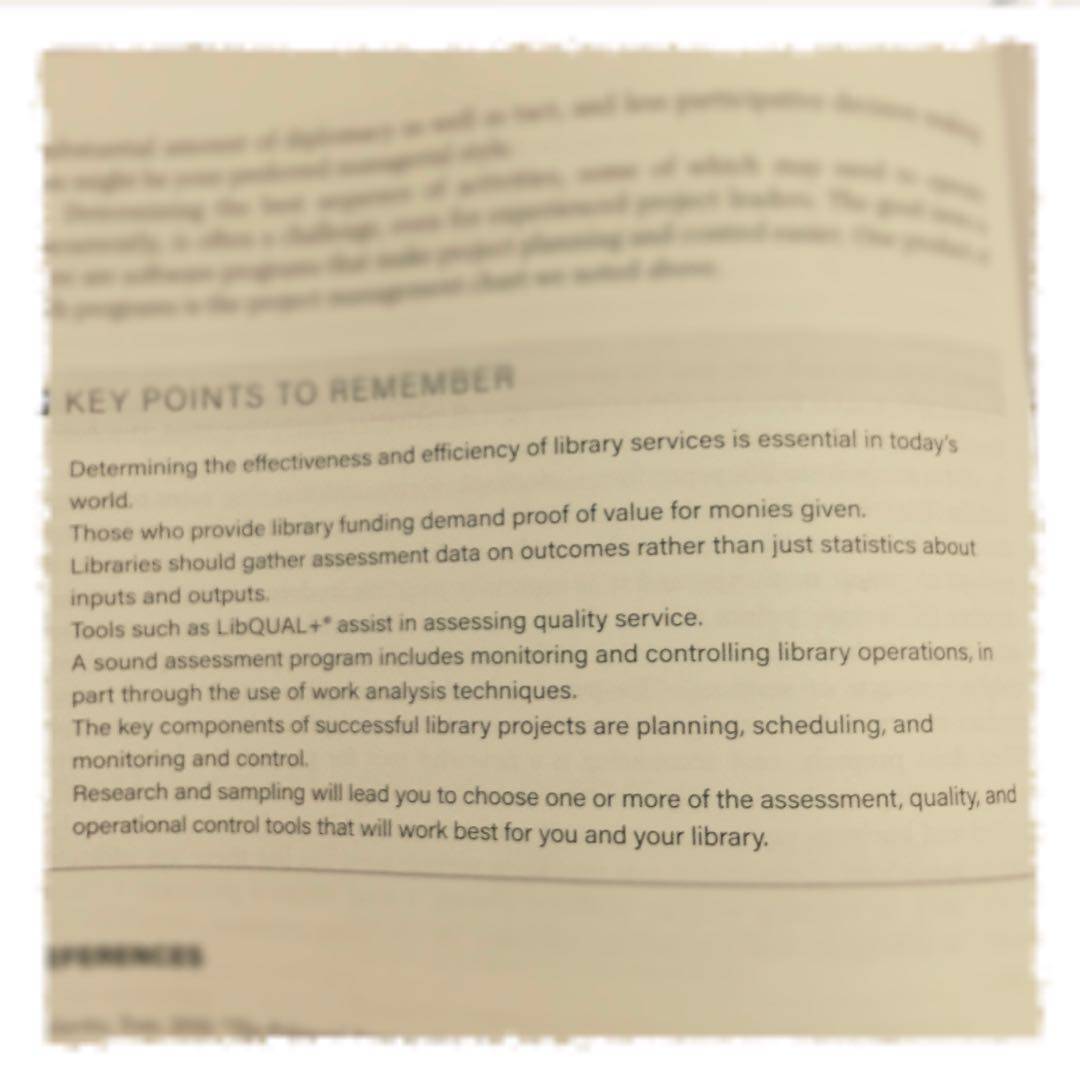
“- Determining the effectiveness and efficiency of library services is essential in today‘s world.
- Those who provide library funding demand proof of value for monies given.
- Libraries should gather assessment data on outcomes rather than just statistics about inputs and outputs.
- Tools such as LibQUAL+ assist in assessing quality service.
- A sound assessment program includes monitoring and controlling library operations...”
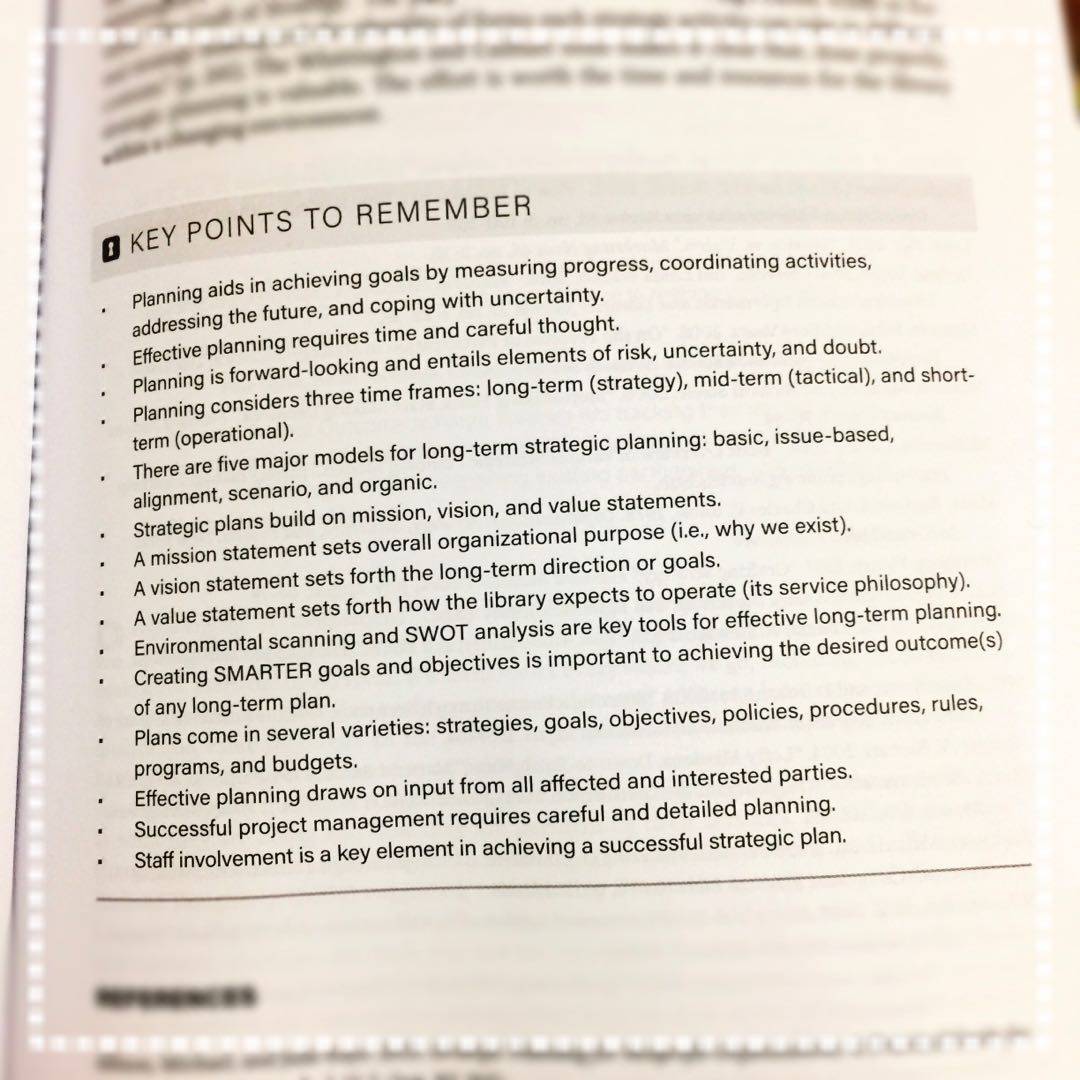
“- Planning aids in achieving goals by measuring progress, coordinating activities, addressing the future, and coping with uncertainty.
- Effective planning requires time and careful thought.
- Planning is forward-looking and entails elements of risk, uncertainty, and doubt.
- Planning considers three time frames: long-term (strategy), mid-term (tactical), and short-term (operational).”
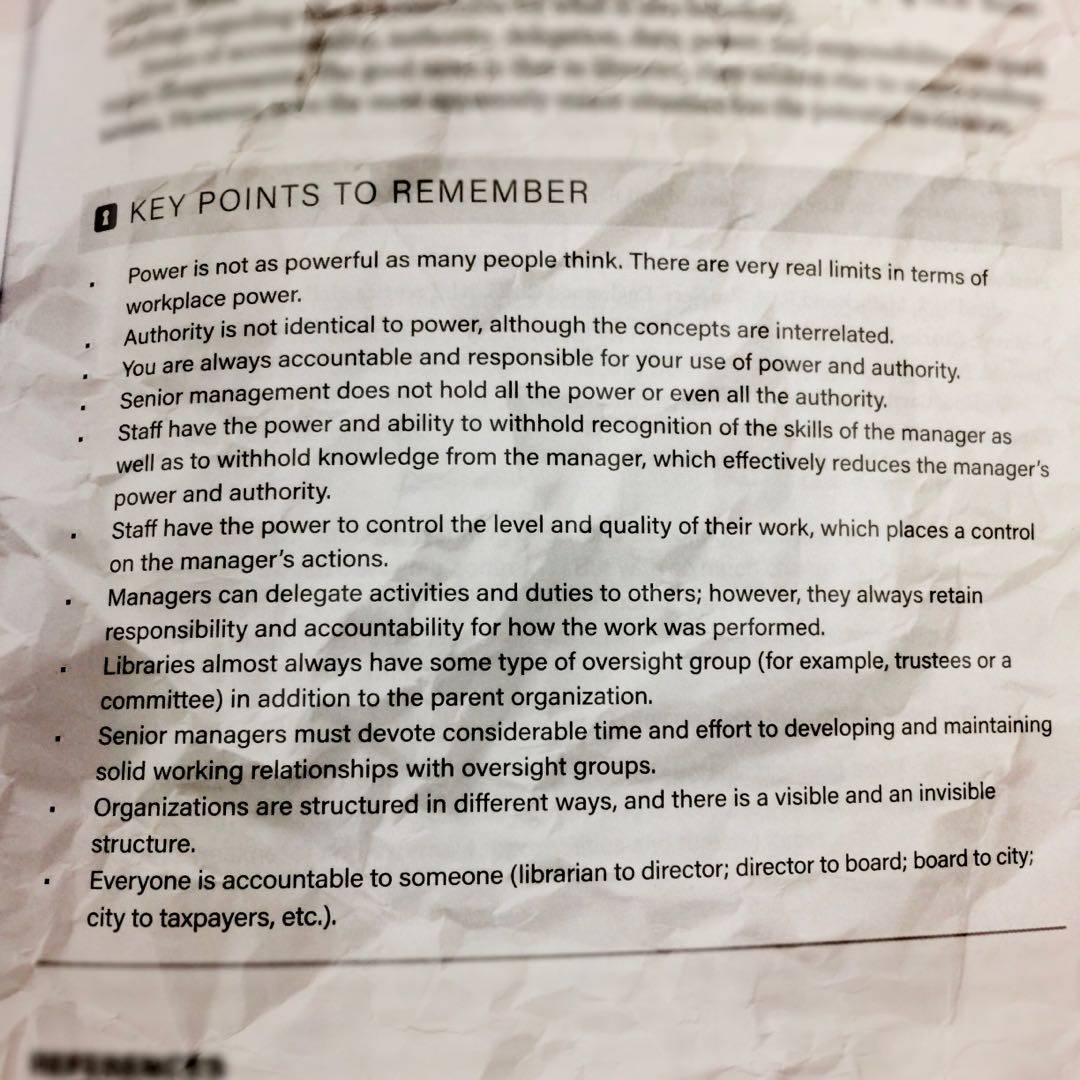
“- Power is not as powerful as many people think. There are very real limits in terms of workplace power.
- Authority is not identical to power, although the concepts are interrelated.
- You are always accountable and responsible for your use of power and authority.
- Senior management does not hold all the power or even all the authority.
- Staff have the power and ability to withhold recognition of the skills of the manager...”
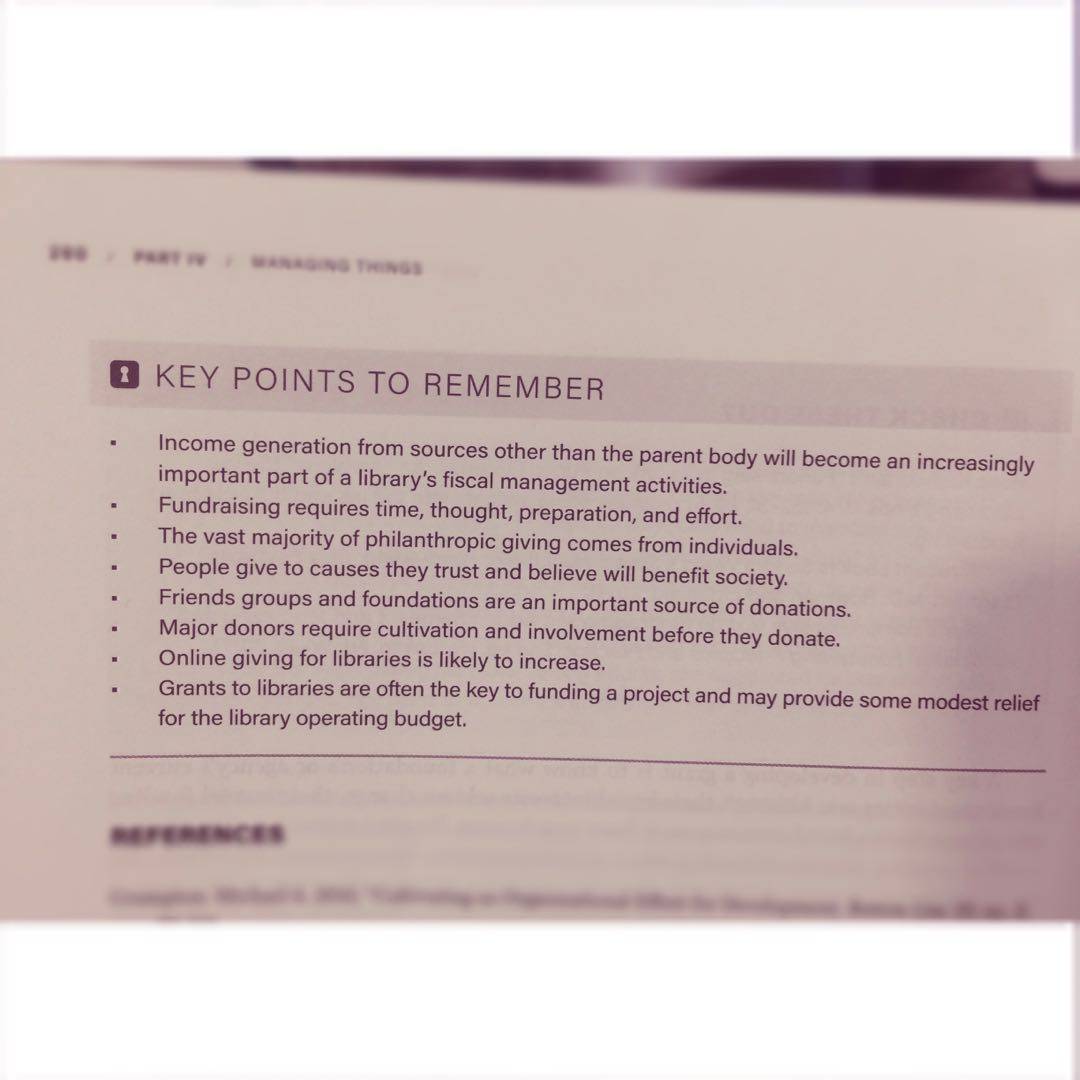
“- Income generation from sources other than the parent body will become an increasingly important part of a library‘s fiscal management activities.
- Fundraising requires time, thought, preparation, and effort.
- The vast majority of philanthropic giving comes from individuals.
- People give to causes they trust and believe will benefit society.
- Friends groups and foundations are an important source of donations.”
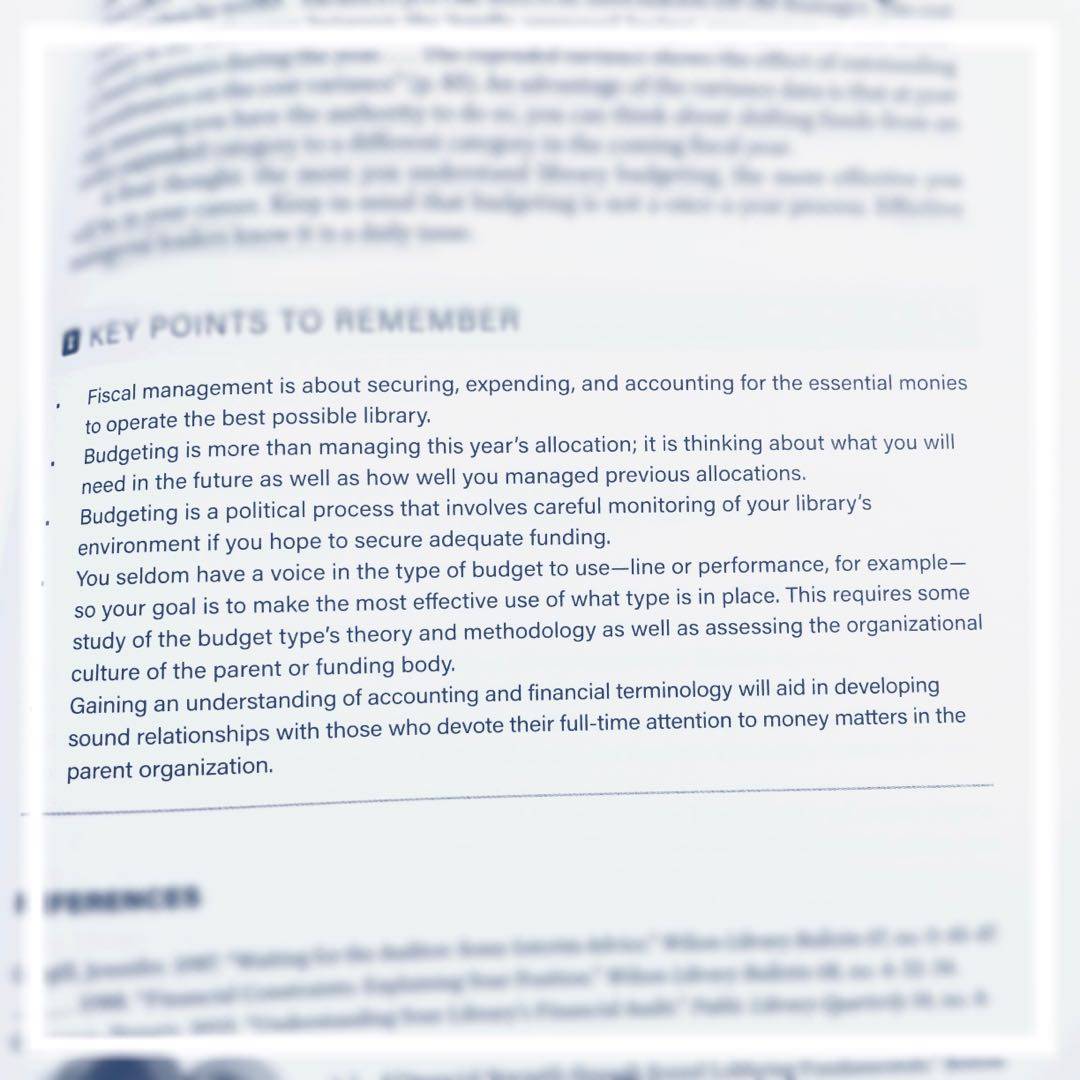
“- Fiscal management is about securing, expending, and accounting for the essential monies to operate the best possible library.
- Budgeting is more than managing this year‘s allocation; it is thinking about what you will need in the future as well as how well you managed previous allocations.
- Budgeting is a political process that involves careful monitoring of your library‘s environment if you hope to secure adequate funding.”
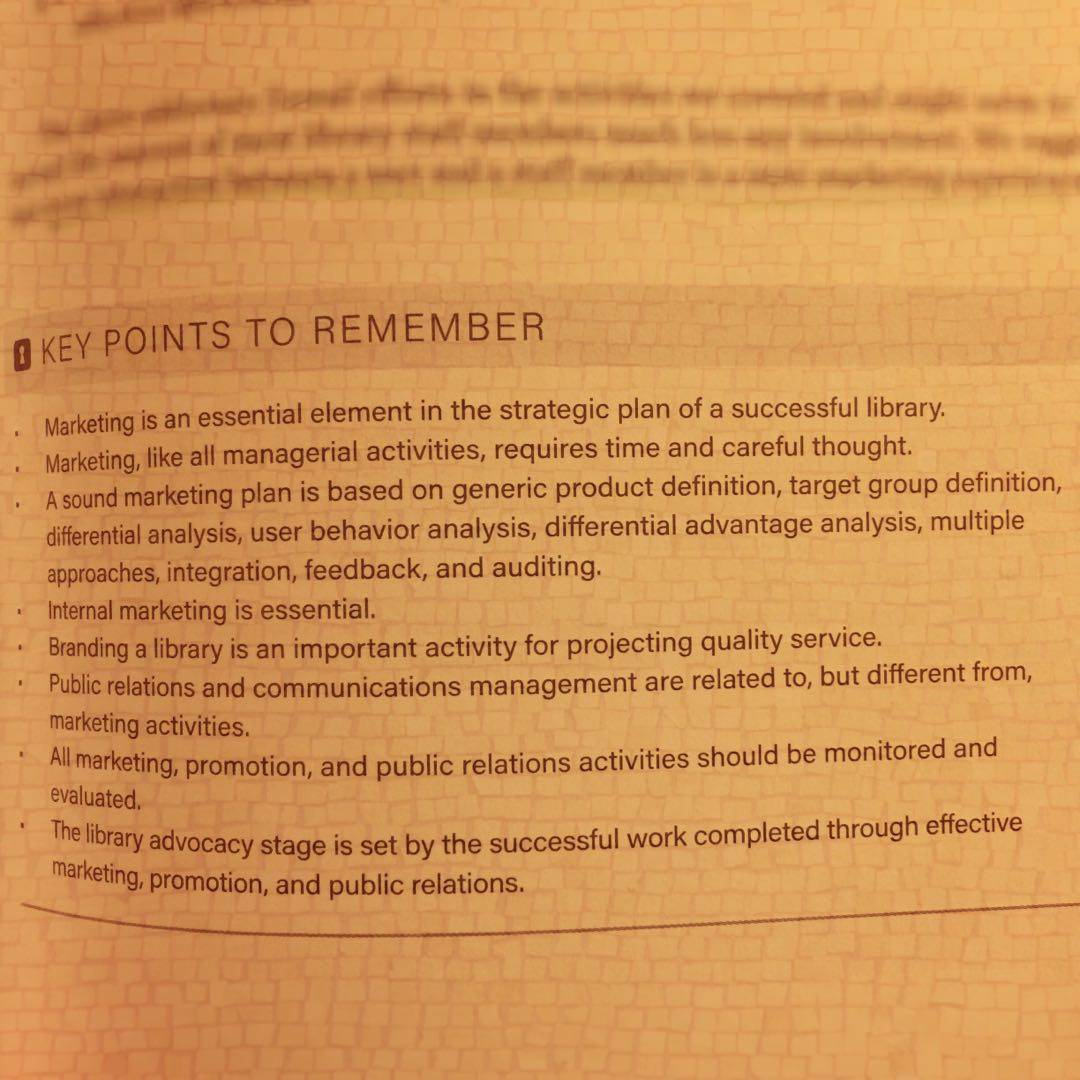
“- Marketing is an essential element in the strategic plan of a successful library.
- Marketing, like all managerial activities, requires time and careful thought.
- A sound marketing plan is based on generic product definition, target group definition, differential analysis, user behavior analysis, differential advantage analysis, multiple approaches, integration, feedback, and auditing.
- Internal marketing is essential.”
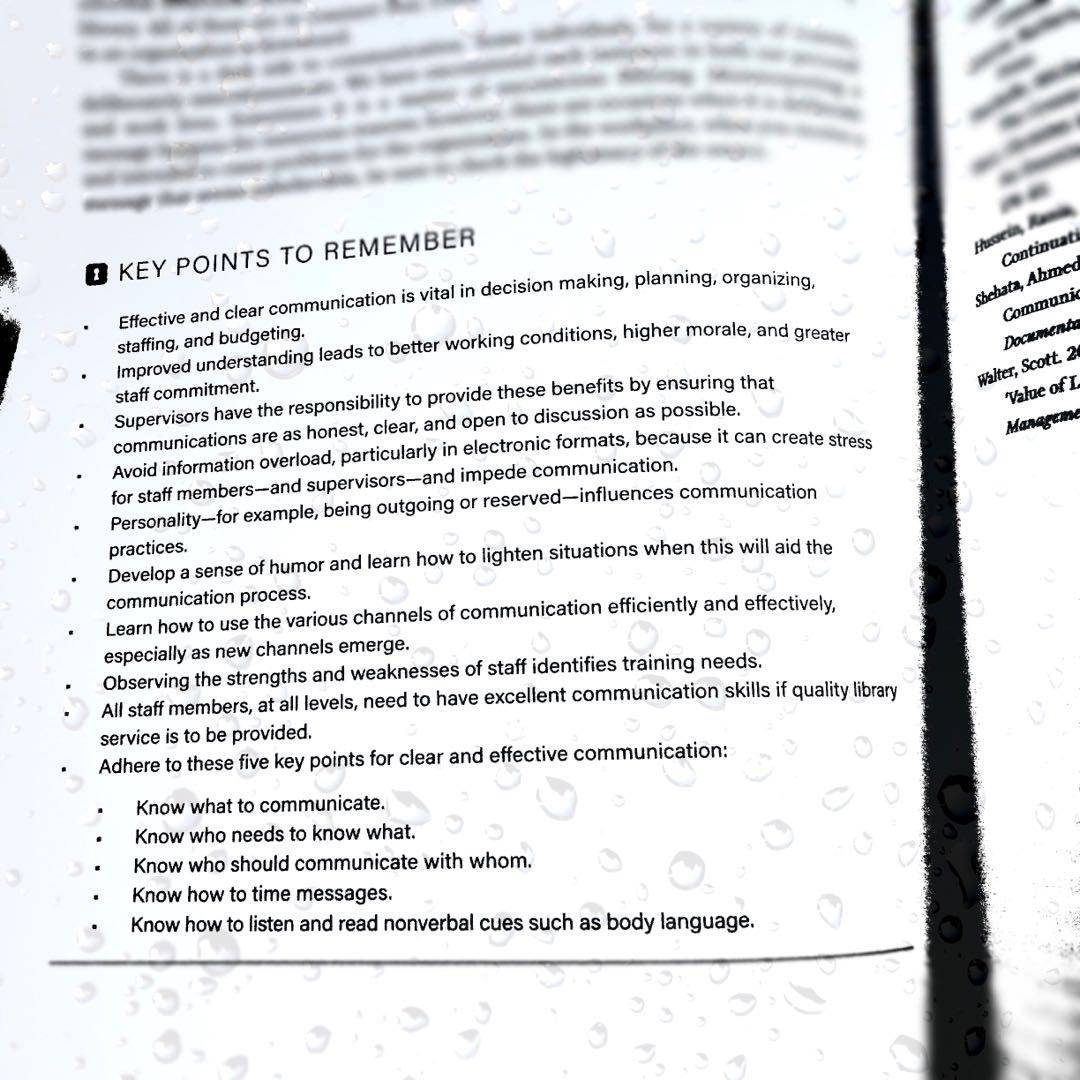
“- Effective and clear communication is vital in decision making, planning, organizing, staffing, and budgeting.
- Improved understanding leads to better working conditions, higher morale, and greater staff commitment.
- Supervisors have the responsibility to provide these benefits by ensuring that communications are as honest, clear, and open to discussion as possible.
- Avoid information overload, particularly in electronic formats...”
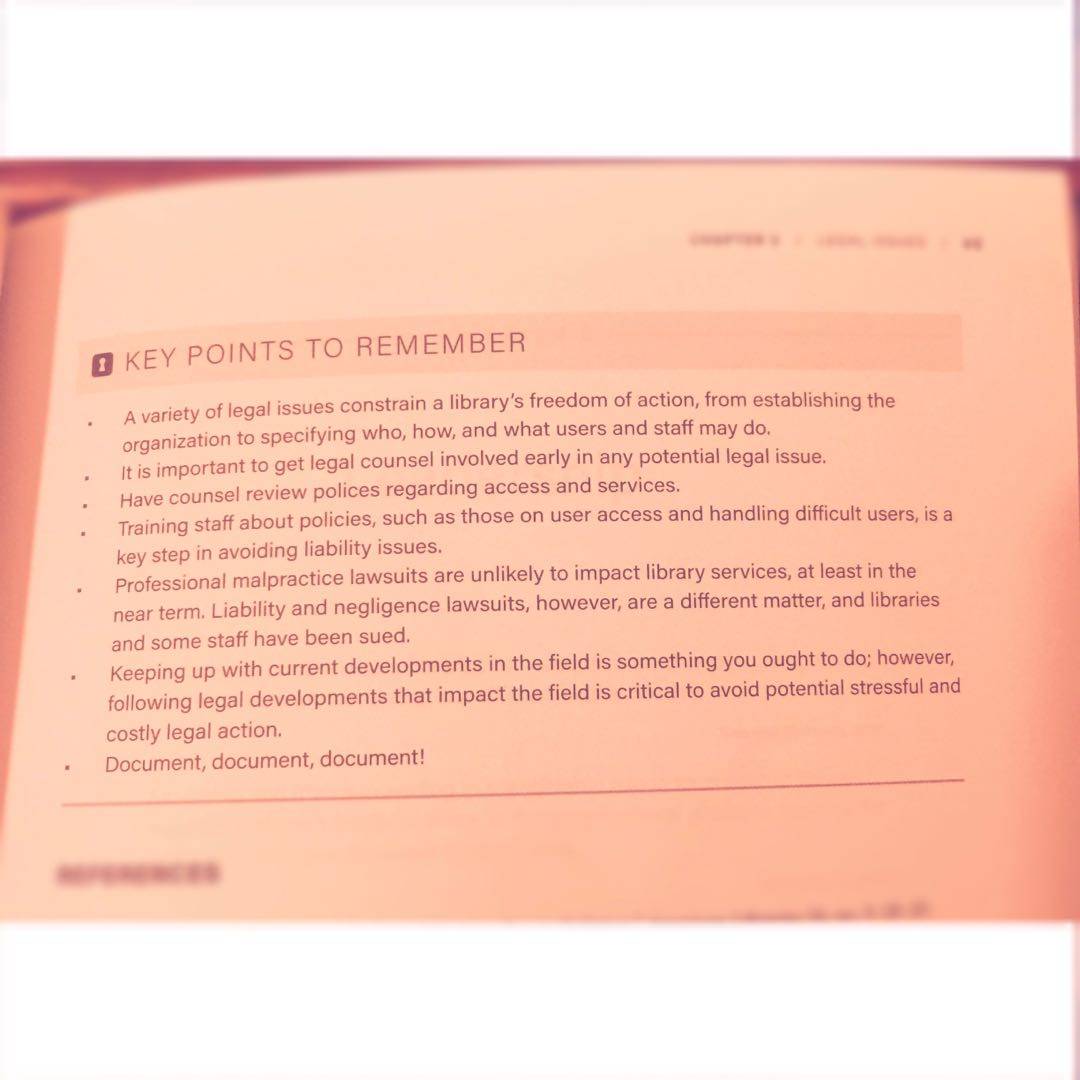
“- A variety of legal issues constrain a library‘s freedom of action, from establishing the organization to specifying who, how, and what users and staff may do.
- It is important to get legal counsel involved early in any potential legal issue.
- Have counsel review policies regarding access and services.
- Training staff about policies, such as those on user access and handling difficult users, is a key step in avoiding liability issues.”
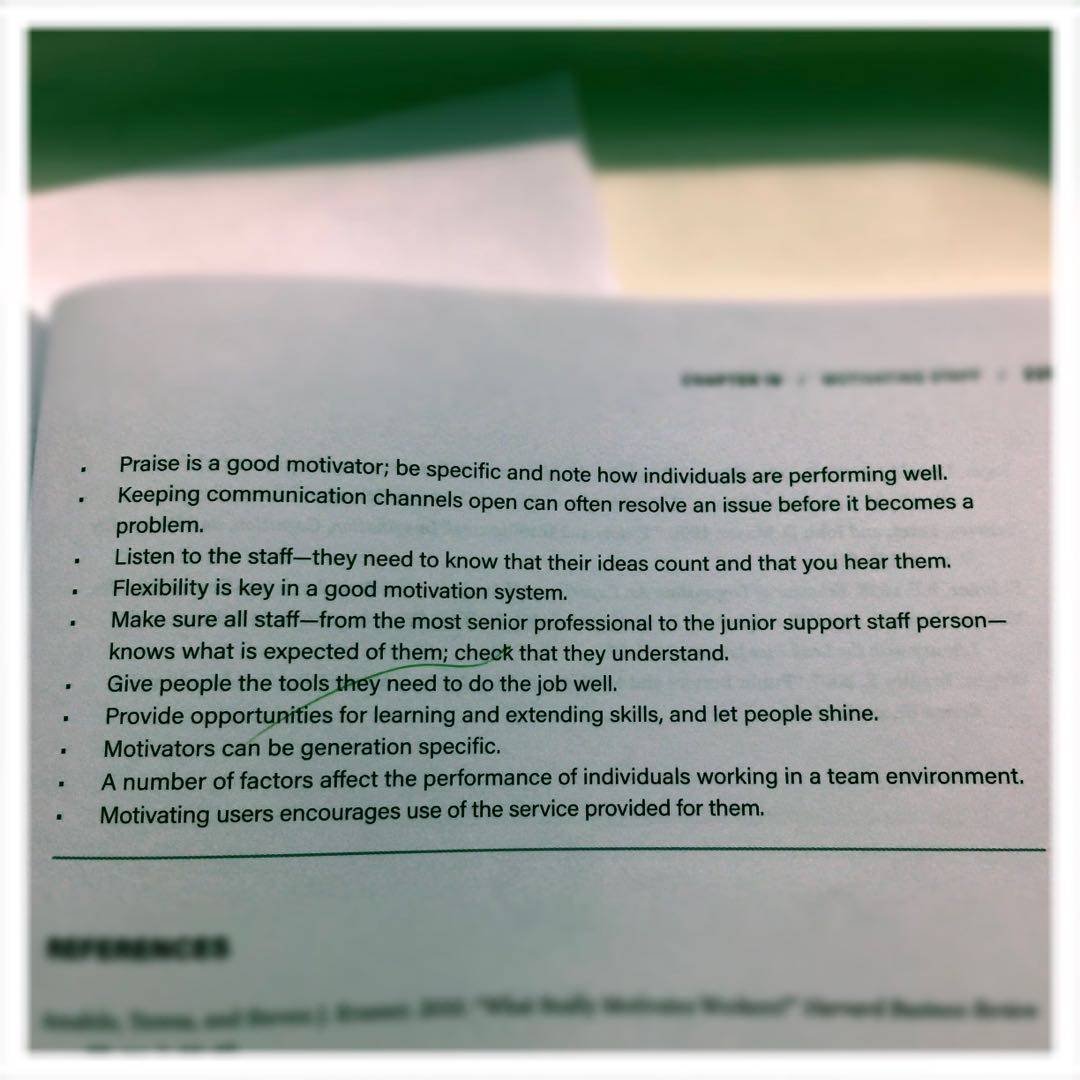
“- Praise is a good motivator; be specific and note how individuals are performing well.
- Keeping communication channels open can often resolve an issue before it becomes a problem.
- Listen to the staff - they need to know that their ideas count and that you hear them.
- Flexibility is key in a good motivation system.
- Make sure all staff - from the most senior professional to the junior support staff person - knows what is expected of them...”
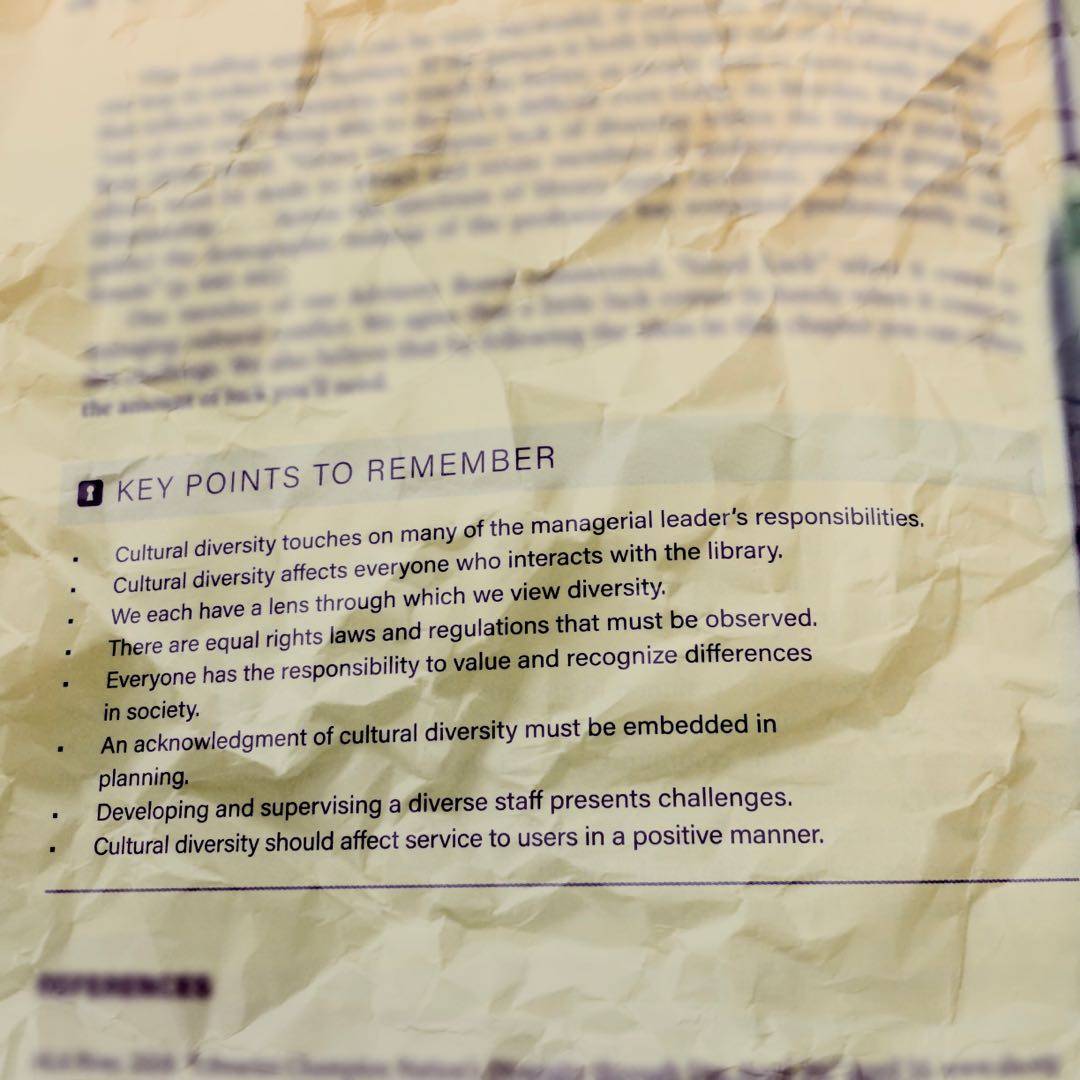
“- Cultural diversity touches on many of the managerial leader‘s responsibilities.
- Cultural diversity affects everyone who interacts with the library.
- We each have a lens through which we view diversity.
- There are equal rights laws and regulations that must be observed.
- Everyone has the responsibility to value and recognize differences in society.
- An acknowledgement of cultural diversity must be embedded in planning.”
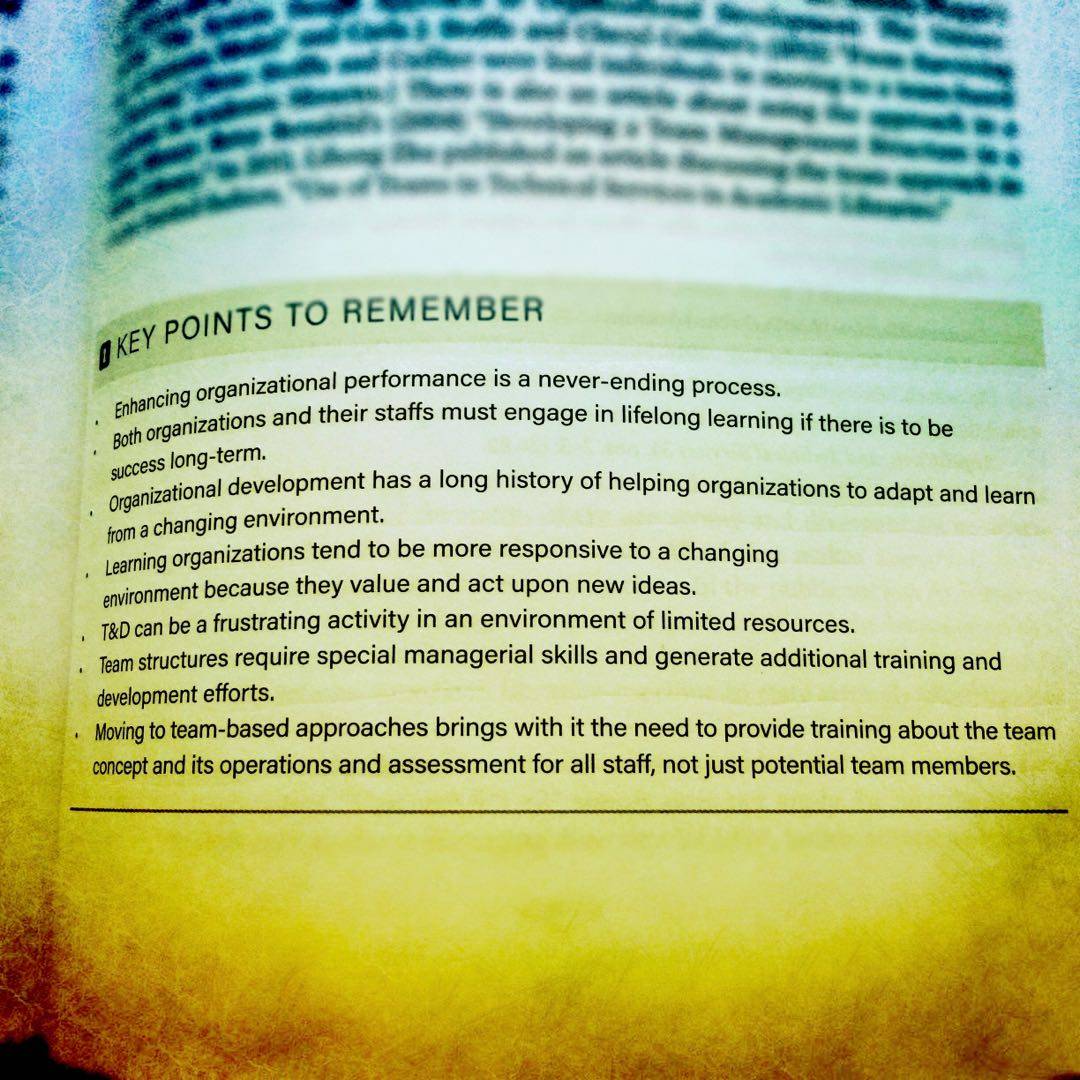
“- Enhancing organizational performance is a never-ending process.
- Both organizations and their staffs must engage in lifelong learning if there is to be success long-term.
- Organizational development has a long history of helping organizations to adapt and learn from a changing environment.
- Learning organizations tend to be more responsive to a changing environment because they value and act upon new ideas.”
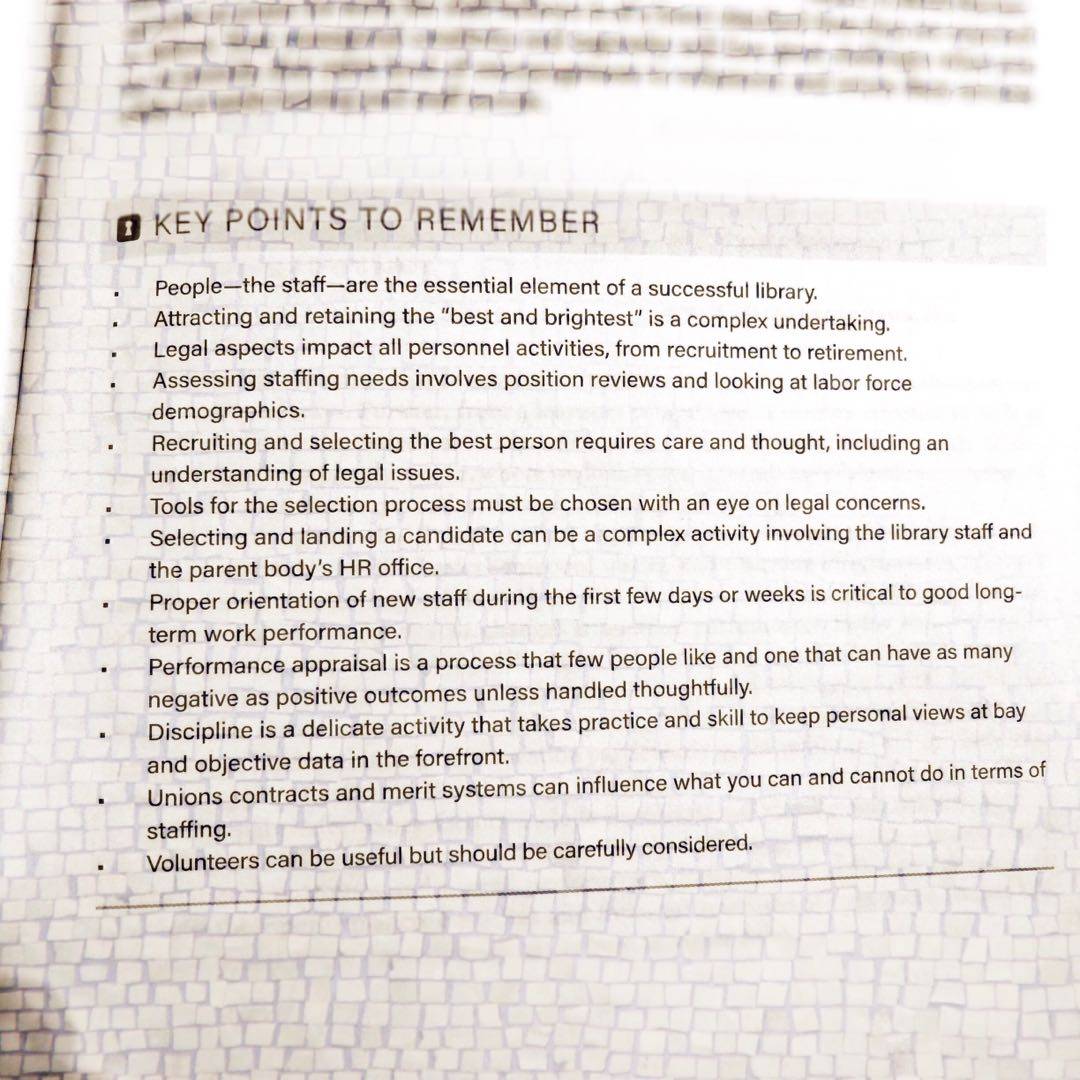
“- People - the staff - are the essential element of a successful library.
- Attracting and retaining the “best and brightest” is a complex undertaking.
- Legal aspects impact all personnel activities, from recruitment to retirement.
- Assessing staffing needs involves position reviews and looking at labor force demographics.
- Recruiting and selecting the best person requires care and thought, including an understanding of legal issues.”
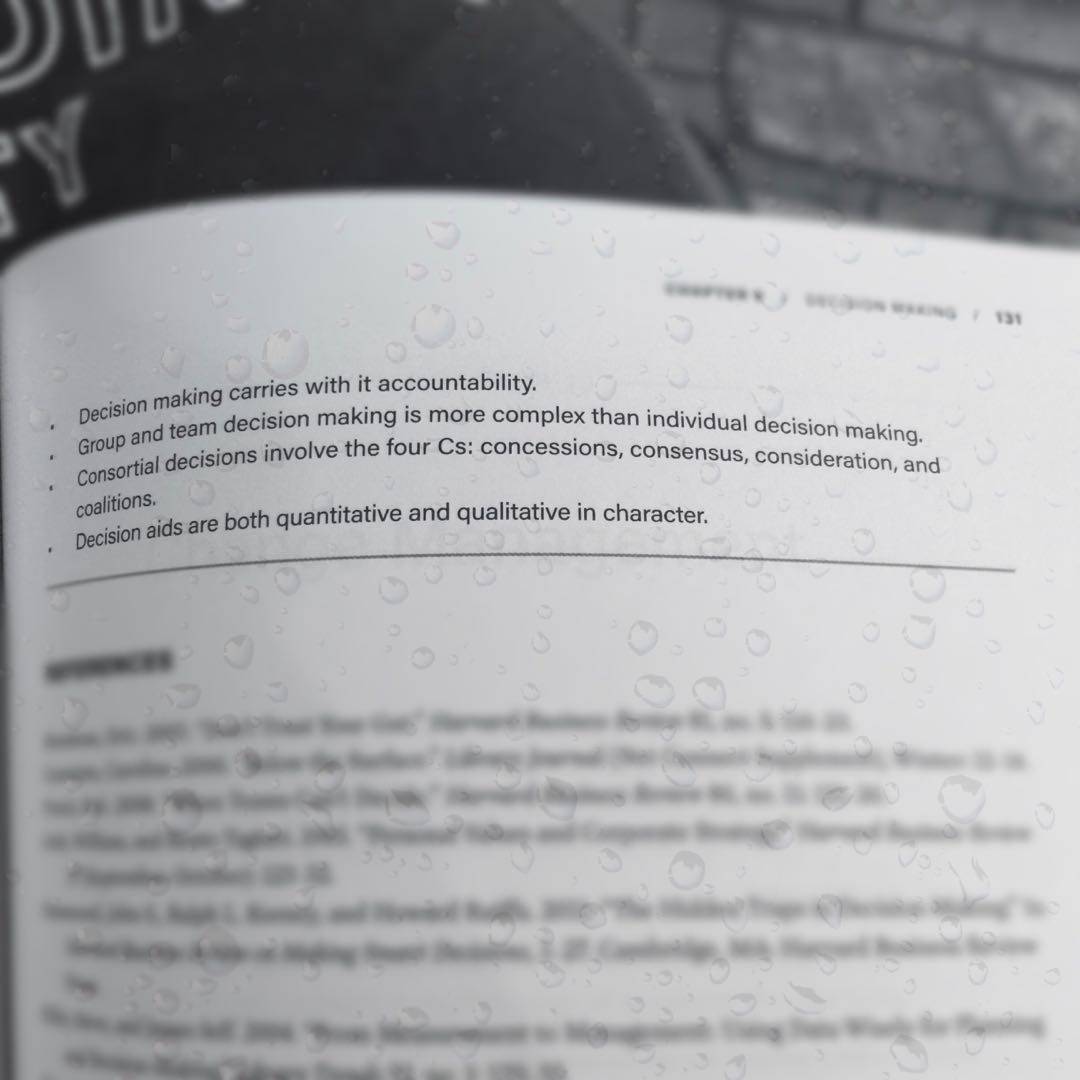
“-Decision making carries with it accountability.
- Group and team decision making is more complex than individual decision making.
- Consortial decisions involve the four Cs: concessions, consensus, consideration, and coalitions.
- Decision aids are both quantitative and qualitative in character.”
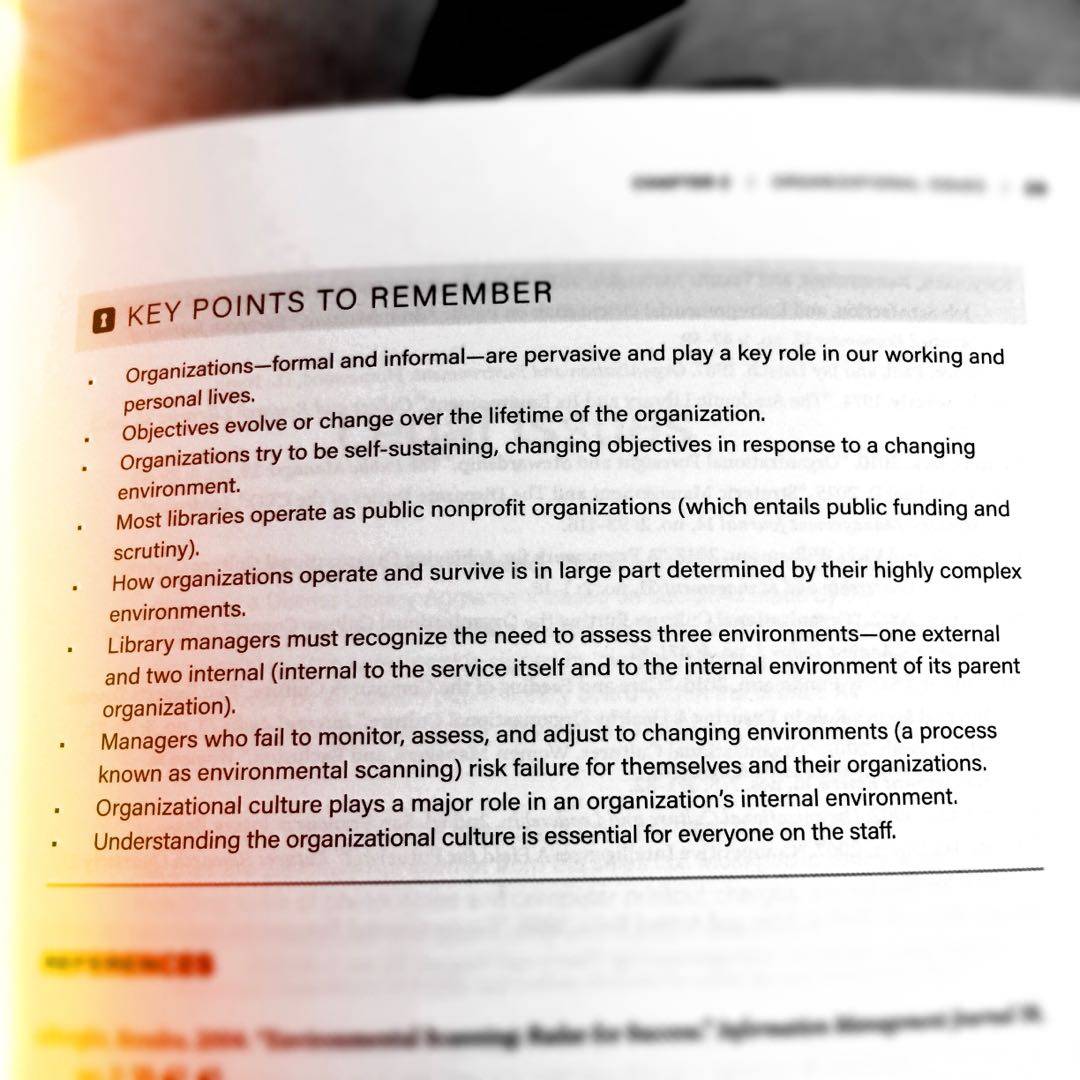
“- Organizations - formal and informal - are pervasive and play a key role in our working and personal lives.
- Objectives evolve or change over the lifetime of the organization.
- Organizations try to be self-sustaining, changing objectives in response to a changing environment.
- Most libraries operate as public nonprofit organizations (which entails public funding and scrutiny).”
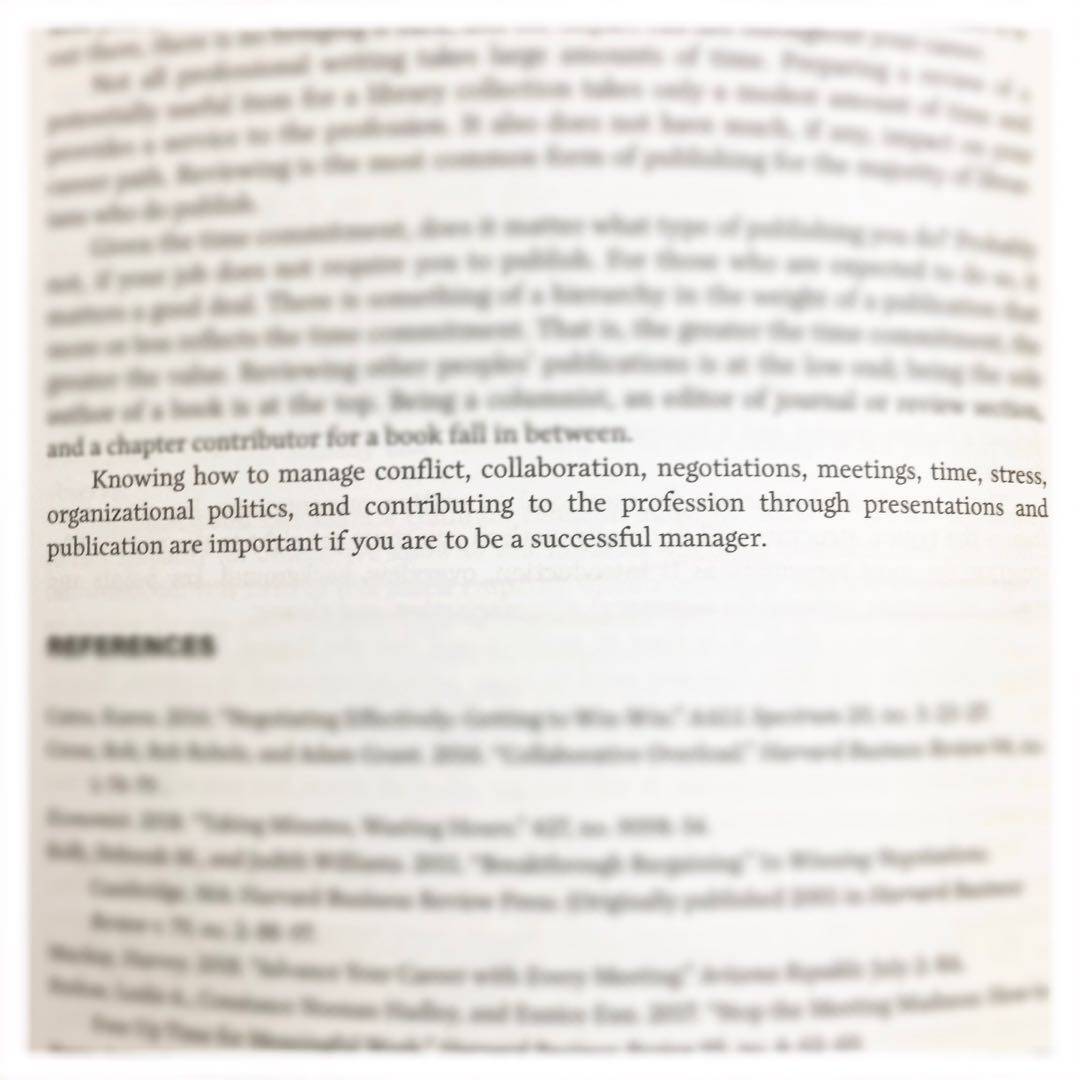
“Knowing how to manage conflict, collaboration, negotiations, meetings, time, stress, organizational politics, and contributing to the profession through presentations and publication are important if you are to be a successful manager.”
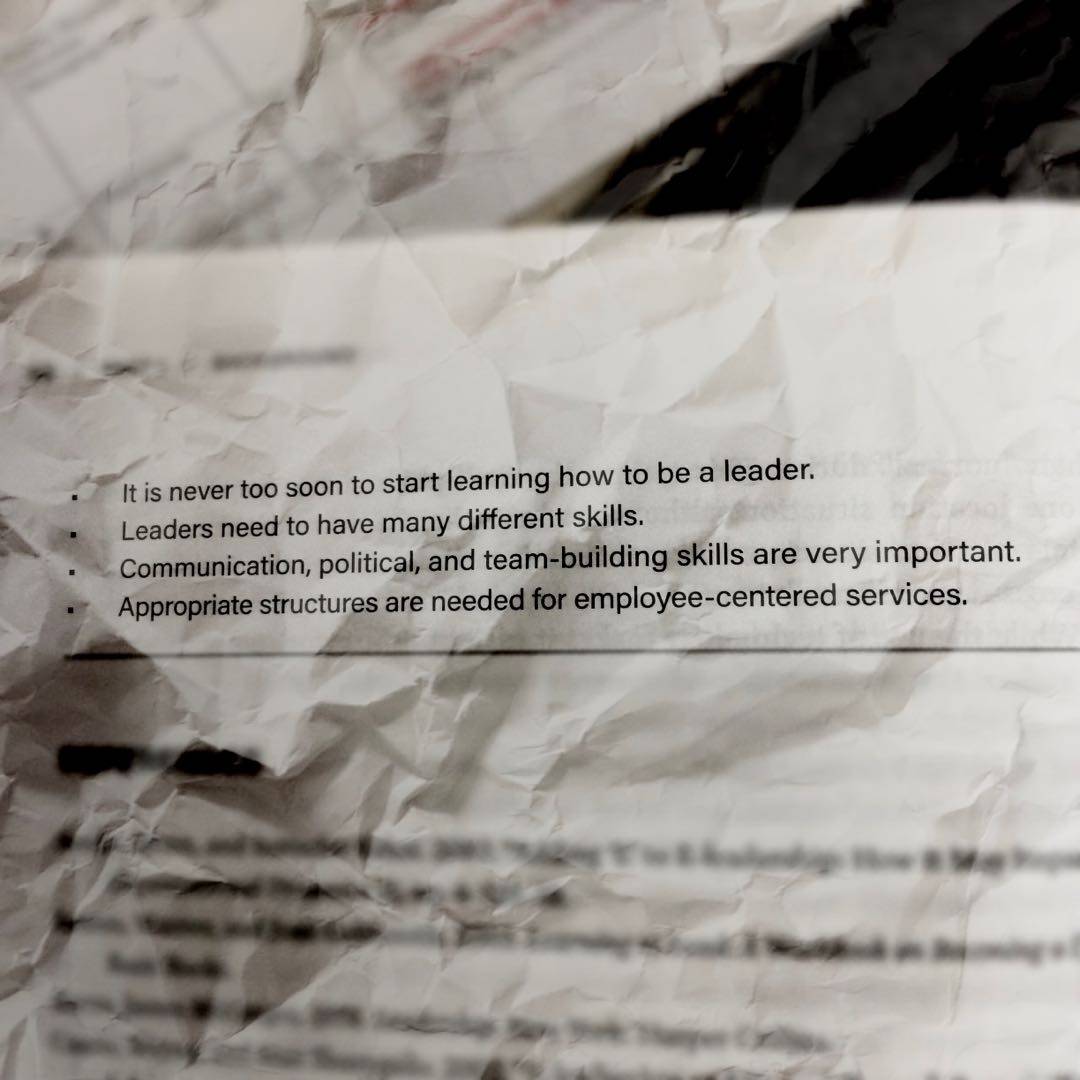
“- It is never too soon to start learning how to be a leader.
- Leaders need to have many different skills.
- Communication, political, and team-building skills are very important.
- Appropriate structures are needed for employee-centered services.”
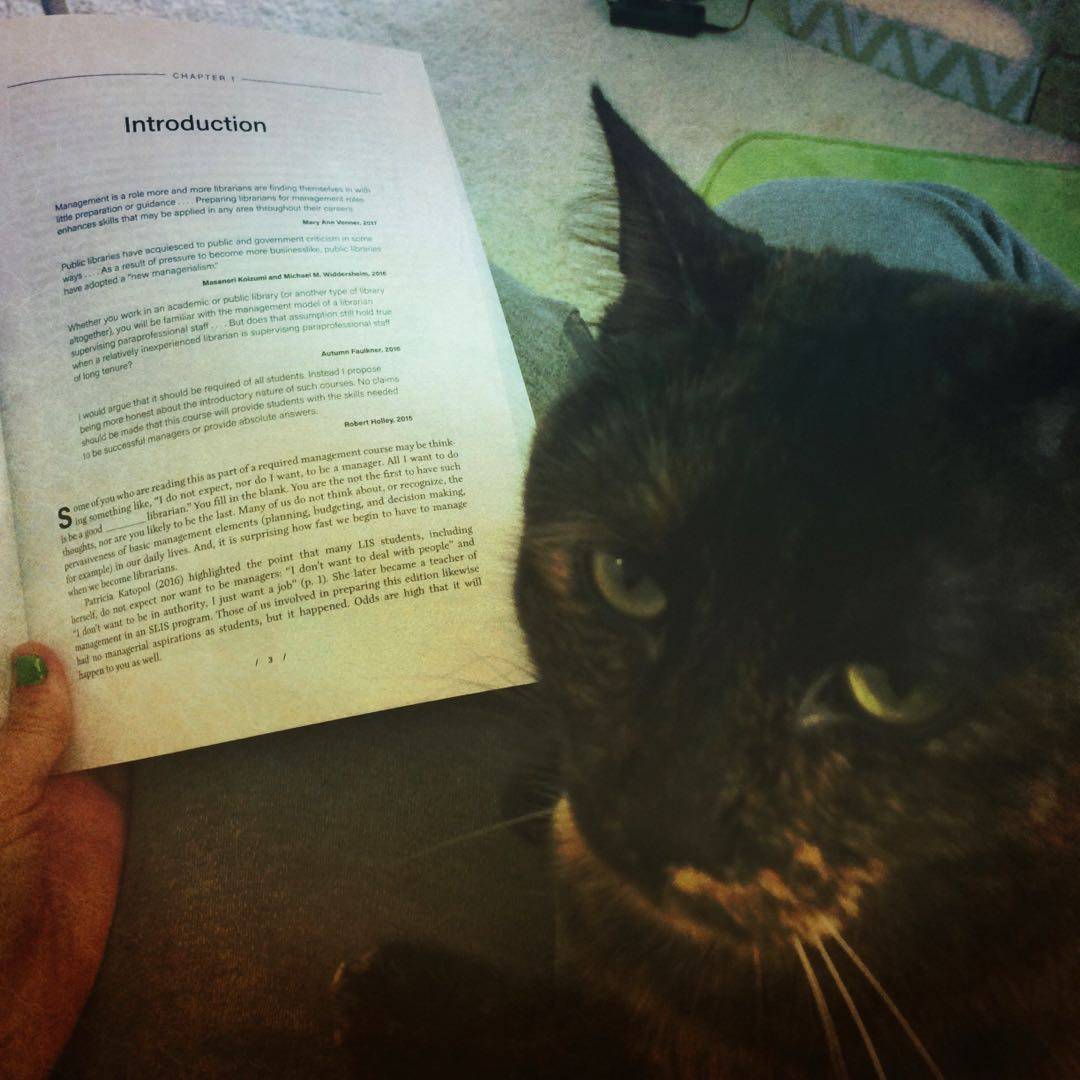
Next grad school class starts Wednesday, but the instructor released the syllabus today, so I am getting a jumpstart on the reading. April has taken up her job as study buddy #catsoflitsy